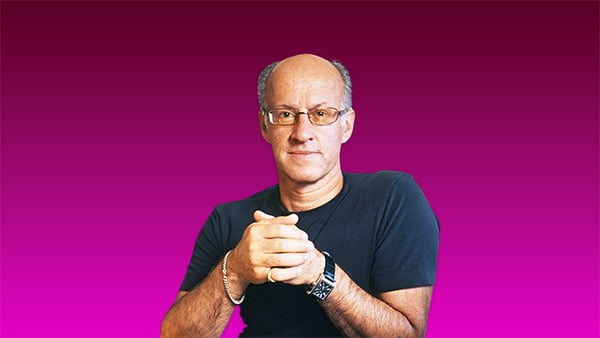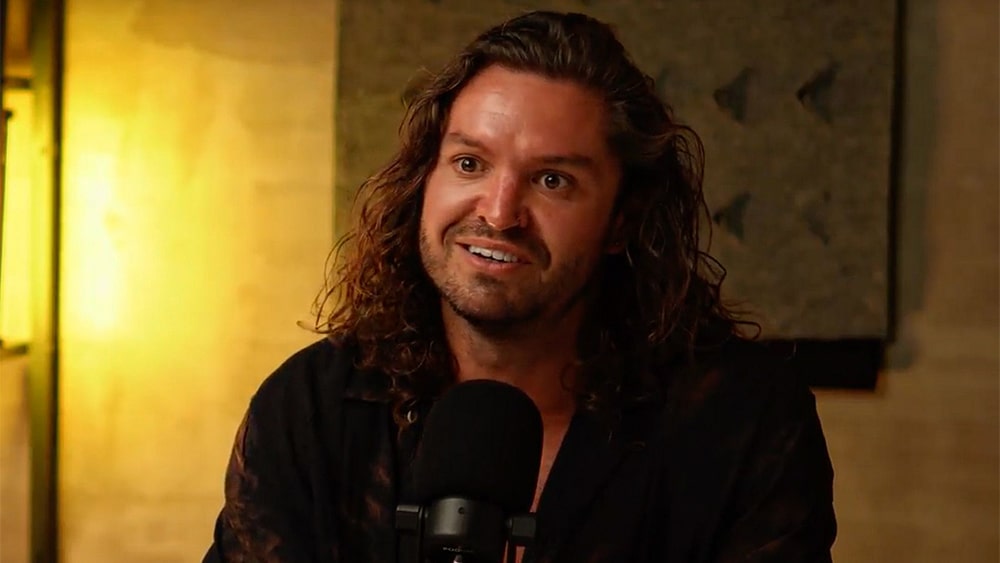How to work well at home: 17 founders share their top WFH tips
Founders of UK businesses are weighing up whether to return to the office; full-time, part-time, or as part of a hybrid working model. It’s a...
Manage your equity and shareholders
Share schemes & options
Equity management
Migrate to Vestd
Company valuations
Fundraising
Launch funds, evalute deals & invest
Special Purpose Vehicles (SPV)
Manage your portfolio
Model future scenarios
Powerful tools and five-star support
Employee share schemes
Predictable pricing and no hidden charges
For startups
For scaleups & SMEs
For larger companies
Ideas, insight and tools to help you grow

This time on FounderMetrics, Vestd founder and CEO Ifty Nasir meets Roger Saul, founder of Mulberry, one of the UK’s most iconic fashion brands.
Roger recounts the journey from selling belts on Portobello Road to winning the Queen’s Award for Export, with bumps in the road included! What does it take to build a global fashion brand from a £500 loan, and what happens when you lose it all?
Check out the main takeaways below, or click here to listen to the full episode!
I was born to two ex-army officers who married at the end of the Second World War and settled in Somerset, where my father joined Clarks Shoes as a management trainee.
I was the second of four children, raised in a fairly rugged way, getting the bus to school 10 miles away at age five, then heading to boarding school at eleven.
Kingswood, in Bath, was tough at first with cold dormitories and frost on the windows, but I soon found my feet. I thrived in sport, captaining the rugby and athletics teams and representing Somerset and Bath.
My father eventually became the manager of what was then the world's largest shoe factory, producing 60,000 pairs of shoes per week. I was fascinated by the technology: machines that could cut leather automatically, quality control through synthetic finishes, and this incredible sense of production scale.
I’d accompany him on Saturday mornings, fiddling with scraps of leather just to be close to him. He was a brilliant man-manager, hugely respected, and I absorbed a lot just by watching him lead.
Somehow, I won a scholarship to Westminster College, sponsored by a solid fuel company in Surbiton. During the interview, I mentioned my side business trading Victorian military uniforms.
I hitchhiked to London, sold them at Portobello Road, and managed to snag a corner of a stall owned by a fur trader. It was exhilarating - selling things I loved, meeting people like the Rolling Stones. It gave me my first real taste of trading and the freedom it brings.
When I got to London full-time, I realised I didn’t want to spend my career in fuel. A friend introduced me to a trendy boutique called Guys and Dolls, where I eventually got a foot in the door. I started by making coffee and cleaning stationery cupboards, but soon I was selling accessories on Oxford Street.
When street vendors offered belts, I bought them and resold them at a 300% margin. It was addictive. That’s when I asked my father where I could buy leather. He sent me to Bermondsey.
I found some striking snakeskins, made chokers with my girlfriend using a borrowed sewing machine, and sold them to Biba. That was the lightbulb moment.
I asked my parents to back me, and for my 21st birthday, I received £500. My mother, a former army captain and formidable PA, agreed to act as company secretary. That was the beginning of Mulberry.
Mulberry began with belts, designed around fast-changing fashion trends. Every season demanded something new: buckles grew, shrank, shifted from hips to waists. I’d visit buyers constantly, learning what they were looking for before I sat down to design. That insight became a core discipline - market-first design.
I exported to France early on, facing mishaps like a night in jail for having the wrong customs documents, but we broke through. Selling to top boutiques led to coverage in Vogue and Harper’s Bazaar, which in turn opened more doors.
Our key metric for success was straightforward but powerful: sales, turnover, and profit. We worked with an excellent external accountant, and if we could prove consistent profit, banks extended our overdraft.
It was old-school finance - no equity raised initially, just strong books and fast turnover. Margins were good, and bank lending fuelled our growth through the '70s.
The secret? We handled everything in-house design, production, and wholesaling, which gave us a significant advantage. Many designers failed because they didn't understand manufacturing. We did.
We won the Queen’s Award for Export in 1979, but the market collapsed almost immediately. The pound surged against the dollar by 30–40%, pricing us (and other European brands) out of the US overnight.
Turnover halved in six months. We had to reduce our workforce by 40%. It was brutal.
But we adapted.
I revisited my roots in military style and created the iconic Blouson Jacket, using old army shirts with leather collars and a reconstructed design. It was a hit, launching a hunting, shooting, and fishing collection that sold globally. That period marked the true beginning of Mulberry as a brand, not just a designer-led business.
We opened shops in Paris and London, financed by banks, but overstretched our cash flow. Our solution was franchising, which involved selling complete shop kits and stock to partners, such as our Swedish retailer. It relieved pressure and created international brand exposure without the same financial burden.
In the early '90s, fashion was shifting. Gucci was glitzy, Prada had the cool nylon look - and our efforts to compete with nylon bags didn’t resonate. I pivoted again, this time into the homeware sector. We were already using custom fabrics for our shops, so launching Mulberry Home felt like a natural step. Elle Decor's launch gave us instant publicity, and suddenly, home interiors were the new fashion frontier.
To fund the move, I turned to venture capital. Kleinwort and Phoenix came on board, valuing the company at around £12 million. We gave up 40% of the business but kept control.
Then Gordon Brown handed control of interest rates to the Bank of England, the pound soared again, and we were hit hard. Profits of £2 million turned into losses of £1 million, solely due to currency fluctuations. We had to move 40% of our manufacturing abroad.
Eventually, we floated the company. Everything seemed stable - until Singaporean investor Christina Ong bought 40% and refused to move forward with our US expansion unless she had control.
She made it clear she wanted me out. Though I still owned 46%, I was effectively locked out of management. The board dynamics became toxic, and after a drawn-out power struggle, I was removed as CEO and Chairman.
I retained a significant stake but had no control. The company was flying again, thanks to the "It" bag boom and a revival of ‘70s fashion. Still, I had to choose whether to stay and fight or sell and move on.
Around that time, the neighbouring farm came up for sale. We had lived in the house for 30 years, and I saw an opportunity to reconnect with nature.
I sold my shares at 53p each, despite knowing they’d soon soar to £10, and used the money to buy the farm. Then began my second act: organic farming. I grew spelt, a heritage grain, and transformed the land into a vibrant, wildlife-rich ecosystem.
We built the business vertically, from field to consumer, encompassing a butchery and retail operations.
We even launched Kilver Court Designer Village and opened a Michelin-starred hotel.
But farming is hard. Brexit wiped out 25% of our turnover overnight. The recession drove supermarkets to cut premium products. Margins evaporated. Eventually, I shut it down, but that is another story entirely. Still, I kept the walnut orchard I planted 30 years ago at Sharpham Park!
You'll find Roger’s episode and more on all popular podcast platforms. Or watch the interview in full on YouTube - don't forget to like and subscribe!

Founders of UK businesses are weighing up whether to return to the office; full-time, part-time, or as part of a hybrid working model. It’s a...

We caught up with James Higgins, the founder of Ethical Bedding, an eco-friendly bedding brand raved about in Good Housekeeping, The Times and beyond.
.jpg)
On the third episode of the third season of FounderMetrics, Vestd founder and CEO Ifty Nasir chats with David B. Horne, founder of Add Then Multiply...